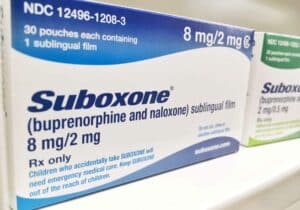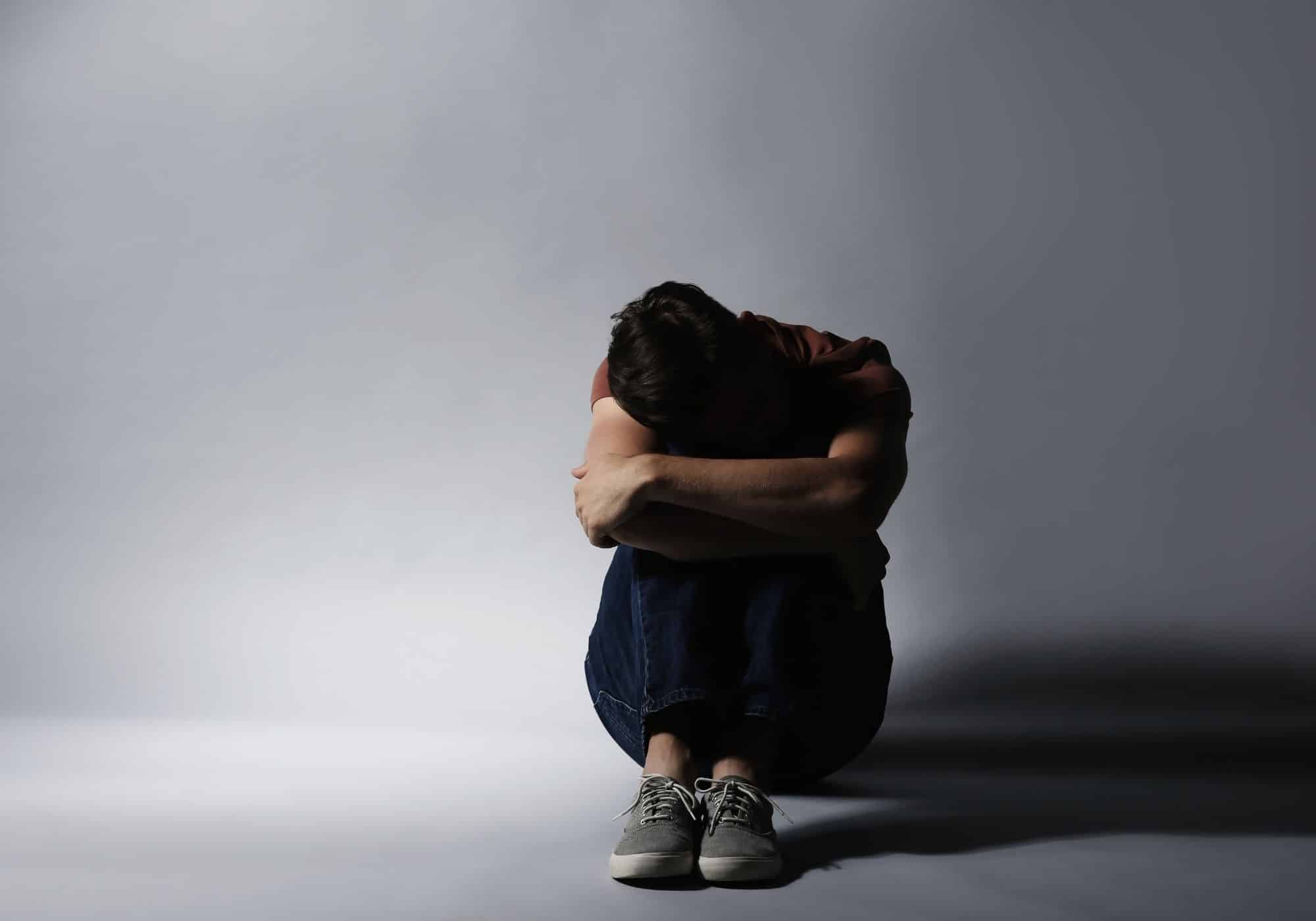What is Benzo Withdrawal?
Benzo withdrawal is what happens when someone suddenly stops taking benzodiazepines (commonly known as benzos). While it’s usually not life-threatening, it can sometimes cause severe issues like seizures or delirium. In rare cases, these complications can be deadly.
Just like with opioids and alcohol, using benzos can lead to physical dependence. This means your body starts to rely on the drug to function normally, usually after using it regularly over a period of time. If you start having withdrawal symptoms when you stop taking benzos, it’s a clear sign that your body has become dependent on them. It’s important to note that this dependence can happen even if you’re taking benzos exactly as your doctor prescribed, which is why long-term use of these drugs is typically not recommended.
Using benzos for a long time can lead to problems, which is known as sedative use disorder. This disorder can increase your chances of having cognitive issues and the risk of overdosing. It’s crucial to remember that benzos can cause dependence even when taken as your doctor tells you to. This makes it really important to follow your doctor’s advice closely and be careful if you’re taking benzos for a long time. The risk of misuse and the problems that come with it show why you need to be cautious with long-term benzo therapy.
Benzo Withdrawal Symptoms
Withdrawing from benzodiazepines, commonly referred to as benzos, can trigger a mix of physical and psychological symptoms.
Physical Symptoms of Benzo Withdrawal
These symptoms can vary but often include:
- Nausea and vomiting
- Diarrhea
- Shakiness or tremors
- Muscle pain or stiffness
- Headaches
- Irregular heartbeats
- Excessive sweating
Psychological Symptoms of Benzo Withdrawal
On the mental health side, withdrawal can cause:
- Psychosis, including delusions and hallucinations
- Sleep problems
- Irritability and restlessness
- Increased anxiety
- Panic attacks
- Memory and concentration issues
Serious Withdrawal Concerns
Some withdrawal symptoms are particularly serious and need immediate medical help. These include seizures, hallucinations, and delusions. Older adults withdrawing from benzos may also have a higher risk of falls and severe heart-related issues, like heart attacks.
Safely Stopping Benzo Use
Because benzo withdrawal can be uncomfortable and sometimes risky, it’s important not to quit them abruptly, especially if you’ve been using them for more than a few days. No matter how long you’ve been taking benzos, always talk to your healthcare provider before stopping. They can help you slowly lower your dose to reduce withdrawal symptoms and ensure a safer process of discontinuing the medication.
Risk Factors of Benzo Withdrawal
The experience of withdrawing from benzodiazepines, or benzos, can be quite different for each person, and there’s no set length of time it lasts. The severity and duration of withdrawal symptoms are influenced by several factors:
- Length of Benzo Use: The longer you’ve been using benzos, the more intense your withdrawal symptoms are likely to be.
- Dosage: Generally, higher doses can result in more severe withdrawal experiences.
- Type of Benzo: Different benzos can affect withdrawal in various ways.
- Method of Use: How you take benzos, like snorting or injecting versus swallowing them, can change the onset speed of withdrawal.
- Existing Health Issues: If you have other medical or mental health conditions, they can make withdrawal more complicated.
- Simultaneous Substance Use: Using other substances, including alcohol, alongside benzos can make withdrawal symptoms worse.
- Family History: A personal or family history of substance abuse can increase your risk of becoming dependent on benzos.
Benzodiazepines, which are classified as Schedule IV controlled substances by the DEA, are prescribed for a range of conditions like insomnia, anxiety, panic disorders, seizures, and muscle spasms. Common benzos include Xanax (alprazolam), Klonopin (clonazepam), Restoril (temazepam), Ativan (lorazepam), and Valium (diazepam). For example, in 2012, alprazolam was among the most prescribed medications in the U.S., according to IMS Health.
While these medications serve important medical needs, they are also subject to recreational abuse.
Factors Influencing Withdrawal Severity
The intensity and duration of withdrawal symptoms from benzodiazepines (benzos) can vary greatly. People who have been taking high doses of benzos for a long time often face longer and more intense withdrawal symptoms than those who used lower doses for a shorter time. According to the U.S. Food and Drug Administration (FDA), patients who have been taking 4 mg/day or more of Xanax for over three months are more prone to dependency and thus may experience more severe withdrawal symptoms.
The way you take benzos also matters. Direct methods like snorting or injecting can lead to quicker effects and a potentially faster onset of withdrawal. In contrast, taking benzos orally tends to produce a slower, less intense effect and delays the start of withdrawal symptoms. Knowing these factors is key for anyone thinking about or currently going through benzo withdrawal, highlighting the need for medical advice and a tailored approach to treatment.
Benzodiazepine Withdrawal Timeline
Understanding the timeline for benzo withdrawal can help in navigating the path to recovery from dependency. The start and length of withdrawal symptoms depend on whether the benzo is short-acting or long-acting. Typically, symptoms start within 6 hours for short-acting benzos and 24-28 hours for long-acting ones. The acute withdrawal phase usually lasts 2-4 weeks, but those with severe addiction or coexisting mental health issues might have longer-lasting symptoms.
Here’s a general idea of the benzo withdrawal process:
Days 1-4:
The first few days often involve rebound symptoms like insomnia and anxiety, which are particularly intense in the first 6-8 hours. For those on short-acting benzos, symptoms usually peak around day 3. You may also experience nausea, increased heart rate, sweating, and cravings. Those withdrawing from long-acting benzos start to feel these symptoms during this time, which could last 7-10 days.
Days 10-14:
In this phase, people coming off short-acting benzos typically see a decrease in acute symptoms. However, for long-acting benzo users, this period is when withdrawal symptoms peak, beginning to lessen around the 3rd to 4th week.
Days 15-28 and Beyond:
By day 15, you might still feel tired but generally better. However, those with a more severe addiction or dependency might experience post-acute withdrawal symptoms (PAWS). These ongoing issues, like chronic insomnia, persistent anxiety, and depression, can last for months or even years.
Remember, everyone’s experience with benzodiazepine withdrawal is different. Being aware of what to expect can significantly aid in managing this challenging phase. With appropriate support and strategies, moving through the withdrawal timeline can pave the way for a successful and lasting recovery.
Duration Of Benzo Withdrawal
The time it takes to withdraw from benzodiazepines (Benzo) varies, largely depending on the specific type of medication you’re using. This difference is mostly because each type of Benzo has a different half-life, which is how long the drug stays active in your body after you take it.
When Do Withdrawal Symptoms Start?
If you’re using shorter-acting Benzos, you’ll likely notice withdrawal symptoms sooner than if you were using longer-acting ones. This is because the drug leaves your system more quickly.
- Shorter-acting Benzos: Symptoms typically start within 6 to 8 hours. Examples of these include Xanax, Dormonoct, and Halcion.
- Longer-acting Benzos: Symptoms usually begin within 24 to 48 hours. Some examples are Valium, Klonopin, and Librium.
How Intense are the Symptoms, and How Long Do They Last?
Withdrawal from shorter-acting Benzos tends to cause more intense and severe symptoms. On the other hand, longer-acting Benzos usually lead to less severe symptoms, and it takes a bit longer for these symptoms to show up.
What Affects Withdrawal Duration?
Several things can influence how long withdrawal lasts, including:
- How often you use Benzos.
- The dosage amounts you’ve been taking.
- The potency of the specific Benzo.
- How long you’ve been using the drug.
In cases of mild addiction, withdrawal symptoms might go away in about a week. But in more severe cases, it could take up to three months to gradually wean off the drug. This slow reduction is really important to avoid dangerous withdrawal symptoms and to make the detox process safer.
What Should I do if I’m Experiencing Benzo Withdrawal?
If you find yourself dealing with benzo withdrawal symptoms, it’s really important to get in touch with your healthcare provider right away. What you should do next will depend on your specific circumstances:
- Missed a Dose: If you’ve just skipped a dose, your healthcare provider may advise you to take it as soon as you remember, then get back to your regular schedule.
- Stopped Taking Benzos: If you’ve stopped taking your benzo for a few days and are experiencing more intense symptoms, you might need medical help.
- Experiencing Severe Symptoms: For serious symptoms, like seizures or delirium, you must seek emergency medical attention immediately.
Dealing with Physical Dependence
Experiencing withdrawal suggests you’ve developed a physical dependence on benzos. This could also be a sign of sedative use disorder. If you think this might be the case, contact your healthcare provider right away. They’ll evaluate your condition and decide if you need to see an addiction specialist or get emergency care.
Approaching Treatment
Treatment for sedative use disorder usually starts with slowly lowering the benzo dose. This process can be done as an inpatient or outpatient, depending on how severe your situation is. Sometimes, your healthcare provider may give you different medications to help you stop using benzos. For example, if you’re on a short-acting benzo, they might switch you to a longer-acting one to make the dose reduction smoother.
Therapy as a Key Component
Therapy is a crucial part of treating sedative use disorder. It can be done one-on-one or in groups. The goal of therapy is to dig into the root causes of the disorder and give you tools to manage it more effectively.
Remember, dealing with benzo withdrawal and sedative use disorder is something you should do with professional guidance and a customized plan. This ensures that you stay safe and that the treatment works well.
Long-Term Treatment for Benzodiazepine Withdrawal
Starting your journey away from benzodiazepines is a big deal, and what happens next is just as important for your well-being. Long-term treatment after withdrawal is customized to fit your situation, including why you started taking benzodiazepines and why you want to stop.
If you were using benzodiazepines for psychiatric reasons, it’s vital to create a new plan to manage your mental health. This usually means combining therapy and different medications to make sure you continue getting the support and care you need.
For those who are moving away from benzodiazepines because of misuse or addiction, especially if you’re also stepping back from substances like alcohol or opioids, your recovery might involve specialized substance abuse treatment. A well-rounded treatment plan is crucial for a successful recovery in these cases.
Psychotherapy is a key part of this process. It’s not just about dealing with the symptoms – it’s about getting to the heart of what led to your substance use in the first place. Through psychotherapy, you can understand the mental triggers that might cause a relapse and learn ways to recognize and avoid these triggers moving forward.
Remember, recovery is a personal journey. You need a plan that really speaks to your individual needs and experiences. By tackling the root causes of your dependence and with the right support and treatments, you can confidently and resiliently manage life after benzodiazepine withdrawal.
Benzo Withdrawal Treatment at Iris Wellness Group
In the serene suburbs of Chattanooga, TN, Iris Wellness Group is a haven for those fighting benzo addiction. Our benzo addiction treatment center offer a nurturing environment conducive to recovery.
Our compassionate benzo outpatient program offers top-tier medical outpatient benzo detox, ensuring a safe and effective detox process. Once free from addictive substances, you can seamlessly transition into one of our specialized outpatient treatment programs at Iris Wellness Group, designed to address substance use disorders:
- Outpatient Detox: Combines the convenience of living at home with the effectiveness of regular treatment sessions, ideal for integrating recovery with your everyday life.
- Outpatient Rehab: This program is really flexible, designed to work around your daily schedule.
- Partial Hospitalization Program (PHP): It’s structured but you don’t have to stay overnight. It’s like getting intensive treatment during the day while you live at home.
- Intensive Outpatient Program (IOP): This one offers deeper, more focused care but still lets you keep up with your everyday responsibilities.
- Dual Diagnosis Treatment Program: This is specially for people who are dealing with both addiction and mental health issues at the same time.
Our benzo treatment programs incorporate a variety of interventions:
- Medication-Assisted Treatment (MAT): This uses medicines to help reduce withdrawal symptoms and the urge to use opioids.
- Psychotherapy: This is all about tackling the mental and emotional factors that play a part in addiction by using CBT or DBT.
- Group Therapy: Here, you’ll get support and learn with others who are going through similar experiences.
- Individual Therapy: You’ll get one-on-one support that’s tailored just for you.
- Family Therapy: This helps fix and strengthen your relationships with family, which is super important.
- Holistic Therapies: These focus on improving your overall health – body, mind, and spirit.
- Aftercare: We’ll keep supporting you even after your treatment is over.
Begin your path to recovery with Iris Wellness Group. Our experienced team is here to guide and support you. For more information or to start benzodiazepine addiction treatment, reach out to our admissions team at 423-441-4650.













